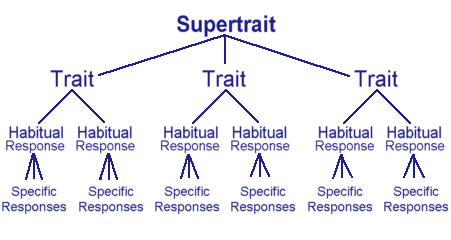General Psychology
Music Can Improve People’s Hospital Experiences
Imagine you’ve just gotten out of a stressful surgical procedure, and you’re now recovering in the hospital. What do you want more than anything? Just some peace and quiet, right? Well, peace, yes. But quiet, not necessarily. In fact, if you’re anything like me, you’d love some good music! Music therapy is a branch of…
Read MoreChildren’s Diets Influence Their Academic Performance
You are what you eat, and if findings from a study published this month hold up, you learn what you eat too. In the study, Finnish researchers surveyed 161 children in Grade 1, all between the ages of six and eight. They asked about the children’s diets and measured the children’s academic performance on a…
Read MoreLoving Money Makes People Objectify Others
Here are the only two things you really need to know about money: Our society is based on money. Money doesn’t always bring out the best in people. Put these together, and you can see why money causes all sorts of problems in both person-to-person relationships and in society on a larger scale. You can…
Read More4 Things You Didn’t Know About Smiling
The smile is one of the most common facial expressions, but what do you really know about it? Probably not as much as you think. Psychologists studying the smile have made some surprising discoveries. Be warned, though, that smiling research is pretty much a Pandora’s Box: once you learn about some of the results, you…
Read MoreGenes Explain Much of the Overlap of ADHD With Binge Eating and Alcoholism
People with ADHD often have comorbid conditions like substance abuse, alcoholism and binge eating. According to some new research from a doctoral candidate at Linköping University in Sweden, a lot of the blame for this unholy alliance between ADHD and other conditions seems to lie in the genes. A few days ago, Andrea Johansson Capusan…
Read MoreLearning One Thing at a Time Is Common Sense, and It’s Wrong
If you have two things you want to learn, what’s the best way to learn them? The intuitive answer would be to focus on learning one, then move on and learn the other. After all, switching back and forth between them over and over would be a lot of work, right? No need to make…
Read MoreTradeoff for Kids Who Play Video Games Instead of Going Outside
Kids are spending too much time glued to screens instead of going outside these days, or so the story goes. But does this wariness of video games and similar activities hold up scientifically? According to new research from Queen’s University, it might. A recent survey asked 20,122 Canadian students in grades 6–10 about how much…
Read MoreIs a Positive Attentional Bias the Key to Resilience?
Everyone would agree that being able to recover from setbacks is a good skill to have. But seeing the world through rose-tinted glasses might seem like a less obvious entry in the list of important life skills. Some research has suggested that the ability to persevere in the face of stressful events might be linked…
Read MoreIt’s Official: People Who Live in the Present Are Happier
It’s a cliche to say that living in the present moment is the key to happiness. But like a lot of cliches, it might contain a kernel of scientific truth. Psychologists call how you relate to the past, present and future your time perspective. And according to a recent study, people’s time perspectives correlate with…
Read MoreChimpanzees Can Cooperate Like Humans
People have both cooperative and competitive instincts that run deep. As long as people have been around, there have been some situations that require working with others and some situations where you have to put yourself first. There’s a tension between cooperation and competition, but throughout history, both have been necessary for survival. To learn…
Read More
